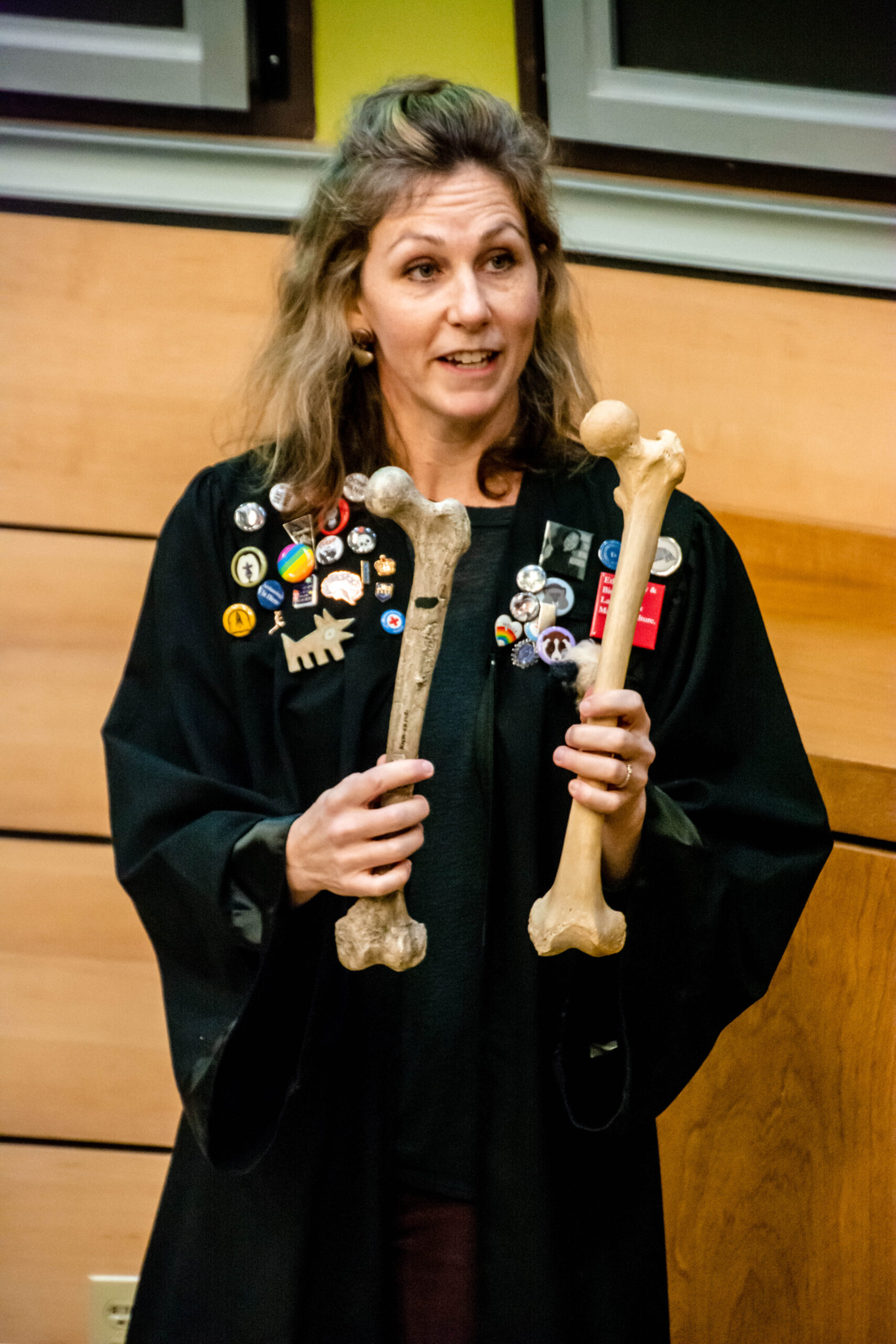Associate Anthropology Professor Holly Dunsworth bout to break out a sick drum solo using femur bones. Hardcore. Associate Anthropology Professor Holly Dunsworth lectures about her research on human pregnancy, for which she was interviewed for a Netflix series. Photo by Autumn Walter.
When Netflix sought to create an episode about childbirth for their series “Sex, Unexplained,” they invited Holly Dunsworth for an interview. Dunsworth, an associate anthropology professor at the University of Rhode Island whose research lies within discovering more about human pregnancy, said yes.
According to Dunsworth, at the time Netflix was working on a mini-series focused on sex.
“[The series] would be like the sex education you wish you had,” Dunsworth said.
While the episode just premiered at the beginning of 2020, Netflix reached out to Dunsworth during the spring of 2019.
At first, Netflix had a phone call with Dunsworth before they decided to interview her on camera in Rhode Island. Dunsworth said that this phone call was designed for the team of creators to talk to an expert about the topic they’re researching while seeing if the expert would be a good fit for on camera.
“If you’re an engaging speaker, now they’re more comfortable asking for you to be on camera,” she said. “So that’s what happened.
According to Dunsworth, the producers were interested in her rhetoric and research. They drove up from New York City to her house and filmed for a few hours.
The producers mostly asked her about the evolution of childbirth and the scientific reconstruction behind it. Dunsworth said she also shared her own childbirth experience, as she had previously talked about it publicity on her blog
“[This topic] is interesting to people, including me because it helps explain why humans have a uniquely difficult time compared to other primates,” Dunsworth said.
She believes that learning about the many other animal’s evolution and process of birth helps explain why humans have such a difficult time giving birth and why every woman feels a different amount of pain.
Dunsworth referenced parenting advice books by Harvey Karp that tell parents their
child is “terrible at life” because they’re born early.
“Maybe [people are] learning how to treat it really well but the science behind that, like the evolutionary story behind that is off,” Dunsworth said.
After watching the episode herself, Human Development and Family Studies Lecturer Elizabeth Gruebel decided to incorporate it into one of her class assignments. She required her students to watch the episode and then reflect on the topic of childbirth.
“The assignment went really great and the students had a positive response to it,’ Gruebel said. “I just like how I was able to collaborate with [Dunsworth] because her research is so applicable to human development and family studies.”
Grubel also thought the episode did a good job at breaking down how natural selection “doesn’t really care about childbirth.”
According to Dunsworth, her research aims to influence how people see and understand evolution and how this can relate back to childbirth in various species.

